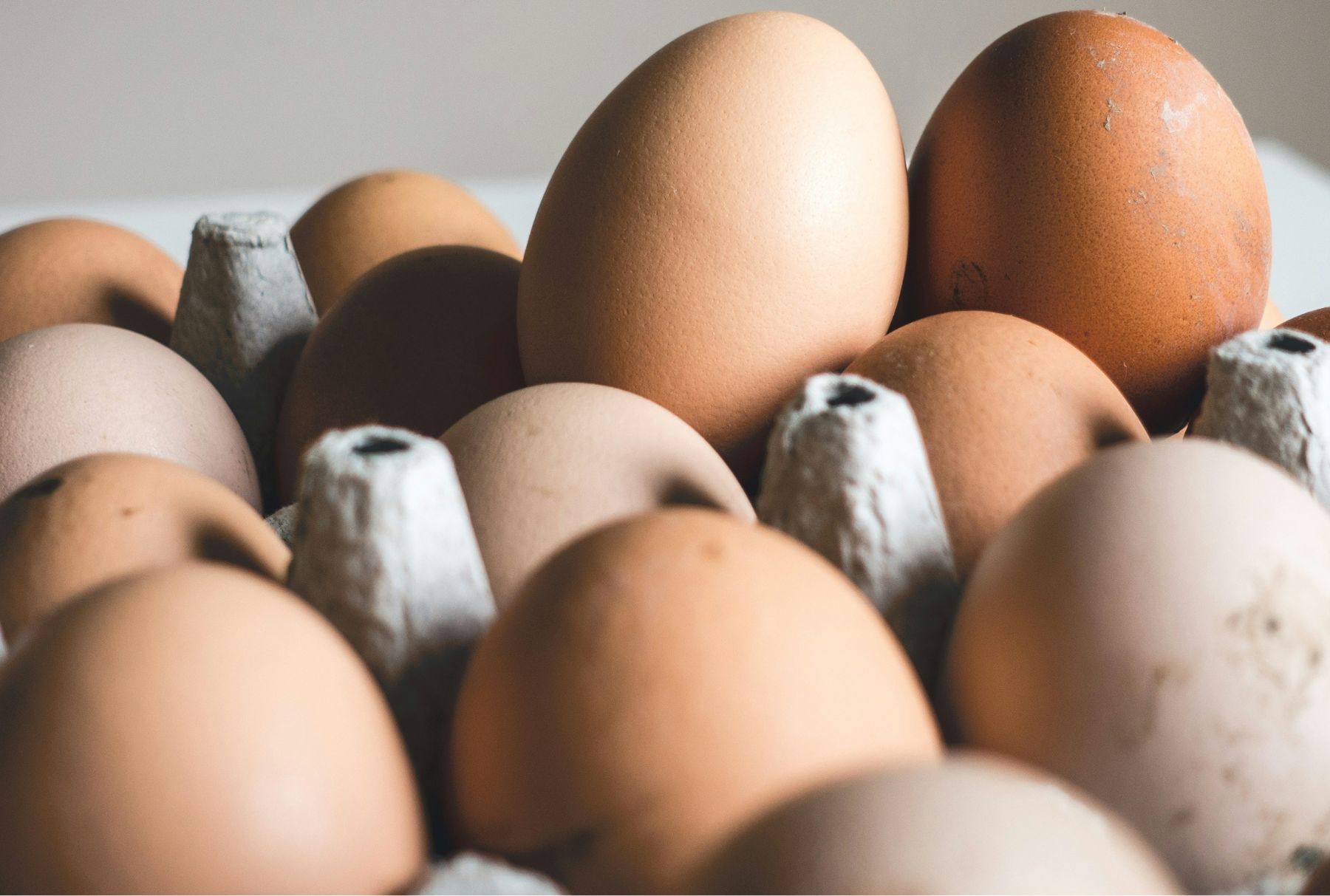Working with industry to determine optimum storage and cooking of vitamin D enriched eggs
Scientists have shown that storing your eggs on the worktop rather than in the fridge - and how you cook them - matters when it comes to preserving vitamin D, known as the ‘sunshine vitamin’.
6 February 2024
Researchers at Newcastle University analysed vitamin D-enriched eggs from the popular brand, the happy egg co., to determine how the concentration of the vitamin was affected by how they are cooked and stored. The study is part of an Innovate UK funded research.
Vitamin D is known to help keep our bones, teeth, and muscles healthy, as well as being important for strong immunity. But some research also suggests that people with low vitamin D levels have a higher risk of developing seasonal affective disorder (SAD) which is especially common during the winter months.
The team compared eggs stored in a fridge to the equivalent of out on the kitchen worktop, and five different ways of cooking the eggs.
Tom Hill, Professor of Nutrition at Newcastle University, who led the study, said: “We found that if you want to retain more of the vitamin D in your eggs then you are better to keep them out of the fridge at ambient temperature, such as on the kitchen worktop. And when it comes to the cooking method, scramble or poach them is best to retain most of the vitamin.
“We know that more than 90% of the British population is not getting enough dietary vitamin D and there is an urgent need to develop foods that will solve this problem.
“Our previous studies have shown how we can successfully enrich eggs with vitamin D through the hens’ diet, which could be a valuable food source in helping to address the widespread problem of deficiency in the UK.
“So now we know, it’s not only about the diet the hens are fed that can significantly increase the amount of vitamin D in the egg, but the way you cook them that influences how much you are going to be consuming.”
Best cooking methods to preserve vitamin D – the science
In this latest research, after storing the eggs, and cooking them with the method under test, batches of eggs were freeze-dried and analysed for vitamin D3 and 25-Hydroxyvitamin D3.
The scientists used true retention to measure the proportion of vitamin D remaining in the cooked food in relation to vitamin D originally present in a given weight of the food before cooking.
They found it ranged from 78% – 109%. This approach allows for different percentage weight losses which occur after cooking caused by water loss, for example.
After being kept at ambient temperature, such as on the worktop, the best method of cooking eggs to preserve the vitamin D to the least successful were found to be:
- Scrambled eggs (109%)
- Microwaved (109%)
- Poached (93%)
- Hard boiled (80%)
- Fried eggs (78%)
Comparing the enriched eggs to normal (non-enriched) eggs then vitamin D was found to be 22% to 132% higher, depending on the method of cooking applied.
The work is published in the academic journal, Foods.
Collaborating with the egg industry
Inspired by his work on how diet affects the bones and muscles of older people, Professor Hill has been working with Noble Foods and DSM Ltd to examine whether feeding hens supplementary vitamin D in their diet translates into enriched eggs and the findings are resounding.
With a whole new diet rich in vitamin D, the more vitamin D is present in the eggs the hens lay. In fact previous research showed that feeding flocks of commercial hens up to 75μg of vitamin D in each kilogram of feed for six weeks improves the total vitamin D content in the eggs by up to 40%.
Soon after reaching these findings, the UK’s leading free-range egg brand, the happy egg co., wholeheartedly adopted the diet for their flocks.
Few foods naturally contain vitamin D, however, eggs are one of few natural sources, with vitamin D in the yolk.
The enriched diet of the hens at the happy egg co. means they lay eggs with 28% more vitamin D per 100g than regular eggs. This means two large happy eggs gives you more than 94% of the European daily guideline, which is the benchmark for food labelling in the UK.
Professor Hill added: “The bigger picture here is that we are proving the benefits of working with industry longer term, to develop real-world food solutions which tackle nutrient deficiencies in the UK population. This is particularly relevant as we await the outcomes from a government call for evidence in 2022, intended to inform policy to improve the vitamin D status of the UK population.
“Our latest Innovate UK funded research into the effects of cooking and storage on vitamin D content of eggs, reassures the commercial partner that the vitamin D has good stability which is good news for egg consumers.”
Reference
The Influence of Storage and Cooking on the Vitamin D Content of 25-Hydroxyvitamin D3-Enriched Eggs by Adam Clark et al. Foods 2023, 12(13), 2522; https://doi.org/10.3390/foods12132522
Image: Egg photo by Jakub Kapusnak on Unsplash

